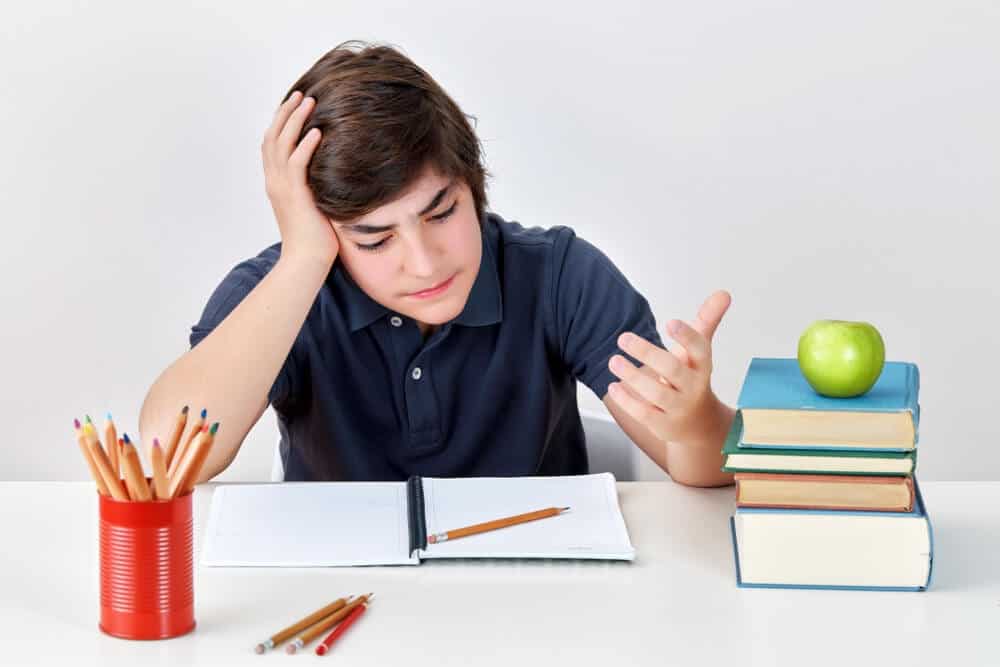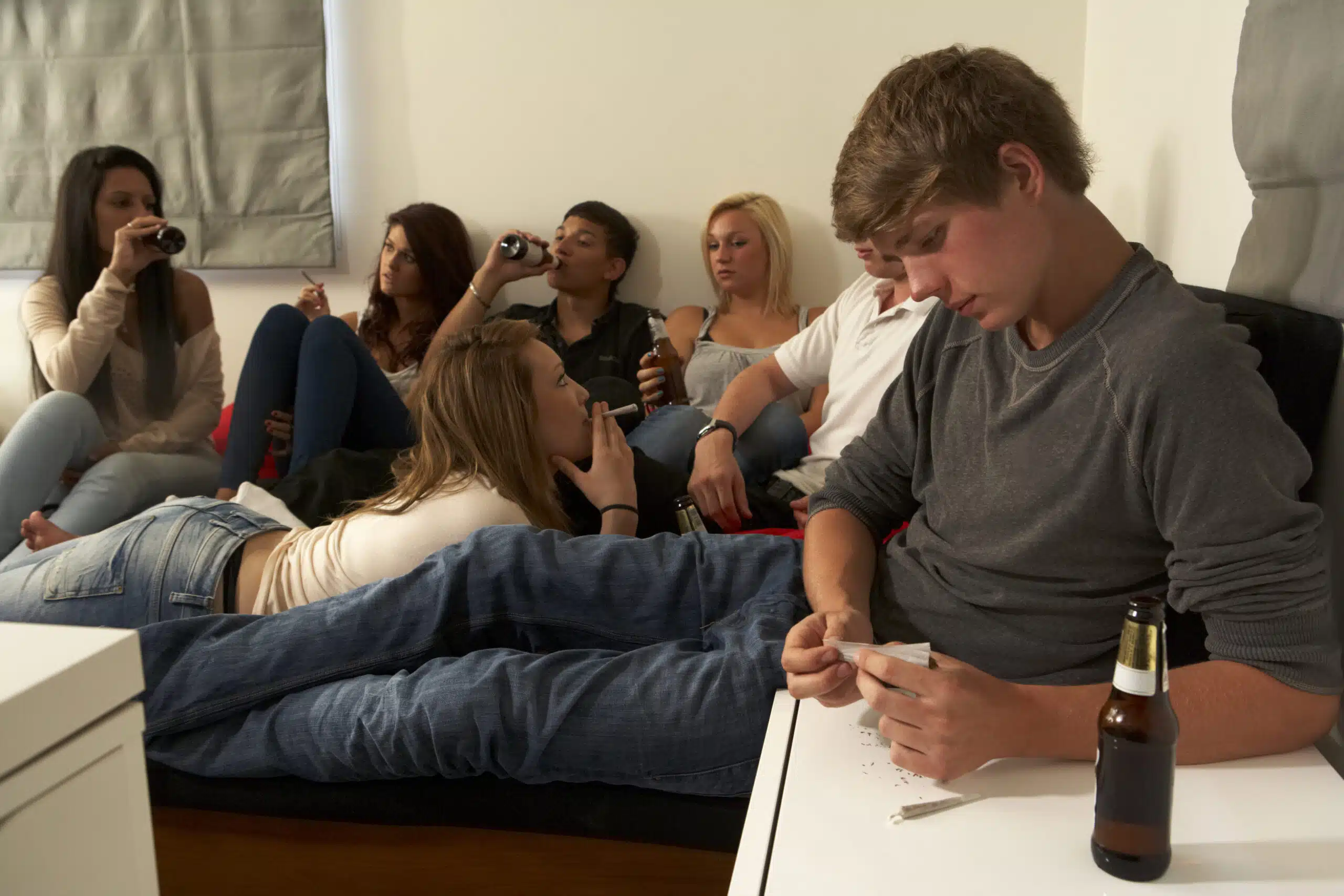
Ritalin Abuse – Be Aware of the Signs
Ritalin is a highly effective medication used to treat teens suffering from Attention Deficit Hyperactivity Disorder (ADHD), a very real mental illness. Commonly referred to by its trade name, Ritalin, methylphenidate is classified as a narcotic per the U.S. Drug Enforcement Administration due to its similarities to morphine, amphetamines, and cocaine. Although it is used for therapeutic purposes when prescribed by a medical professional, Ritalin may also be abused and is highly addictive. It is very important to note that when taken as prescribed by doctors in proper doses, it is not addictive nor is it harmful.
In recent years, as ADHD has become a more common diagnosis among young people, the number of teens addicted to Ritalin has also risen. According to a study conducted by the CDC in 2011, an astonishing 11% of all children in the U.S. are diagnosed with Attention Deficit Hyperactivity Disorder. Higher numbers of children diagnosed equate to more Ritalin being prescribed and therefore, more available for those who do not need it to get their hands on it. During this same time period, the Partnership Attitude Tracking Study discovered that more than 1.3 million teens fall into this category of using Ritalin for their own reasons.
It is common for the immature minds of teens to believe that taking Ritalin is “safe” compared to other drugs. Can you blame them? With children being diagnosed as having ADHD at younger ages, teenagers can only assume that the medication is safe if it is being prescribed to their younger siblings. In their world, it is only logical that prescription drugs are harmless compared to the street drugs which they have been taught from a very young age are horribly addictive and dangerous. In a later study, it was found that nearly one-third of teens believe that taking medication that was not prescribed for them but yet could help them to reach their goals or to overcome a challenge was not really a problem and that their parents would more than likely feel the same way.
For many teens suffering from ADHD, Ritalin provides them with much-needed relief and support to help them manage their daily lives. It serves to promote mental clarity, improves concentration and focus and enhances their ability to handle multiple tasks and responsibilities. In many cases, it is prescribed to help adolescents to control their impulses, to improve listening skills and encourage that they think before acting, leading to better control of their behavior and emotions.
Unfortunately, since it is a stimulant drug, many teens who do not have the need for medical intervention, believe it to be an attractive means of getting high. Because of its addictive properties, teens who use it often unknowingly and unwittingly find themselves in the midst of a substance use disorder or more specifically, stimulant use disorder.
But the question is, why?
Why would teens who have not been diagnosed as having ADHD decide to take a narcotic which has potentially dangerous side effects and may even be life-threatening? The answer is actually fairly simple. Being a teenager brings awareness of how others see you, the desire to be appealing to others and to fit in. Not only does Ritalin give the user a euphoric feeling, but it also plays a role in suppressing appetite and increasing focus and attention. As adolescents want to be liked and accepted, they may resort to taking Ritalin as a means of controlling their eating and therefore, their weight.
On the other hand, as the pressures of adulthood loom nearer, a teen may find that they just can’t handle all of the decisions to be made, the challenges of sports and academics, and the inability to juggle it all. The high that Ritalin offers may be appealing to some as a means of providing additional energy, focus and clarity. As a stimulant, Ritalin allows a teen to keep going for long hours without the need to sleep until inevitably the crash happens, leaving them exhausted and incapable of functioning in their everyday activities. According to the National Institute of Drug Abuse, at least 2% of high school seniors around the country use and abuse Ritalin as a means of “surviving” the teenage years.
If you suspect that your teen is using or abusing Ritalin, especially if it has not been prescribed by a medical professional, it is important that you seek treatment for them by contacting their doctor. They may then be referred to a facility like Beachside Treatment Center to immediately assist with their withdrawal symptoms and to guide them down the road to recovery from their addiction problem.
Be Aware of Ritalin Abuse
Whether your child was in fact prescribed Ritalin or they have chosen to take it on their own, you should be aware of the many signs of Ritalin use and possible abuse including:
- Urges and cravings to experience the feelings of being high
- Not being able to manage everyday activities or tasks
- A feeling that they should, in fact, stop taking it but are physically unable to
- Heart palpitations
- Dizziness/feeling faint
- Impaired vision
- Insomnia
- Pupil dilation
- Nausea and/or vomiting
- Irritability and mood swings
- Easily agitated
- Reduced appetite
With prolonged abuse, Ritalin may cause serious physical, emotional and mental side effects including skin infections, depression, urinary tract infections, blurred vision, high blood pressure, paranoia, and even seizures. In other words, Ritalin abuse may have severe repercussions on a teen’s health and well-being for the long-term. Unfortunately, the consumption of Ritalin in high doses has even been known to cause a teen to experience a cardiac event or even death!
Teens who are using Ritalin as a means to get high may not even realize how susceptible their bodies are to becoming dependent upon the drug. The more that they take, the more their body builds up a tolerance to the substance, requiring more and more volume in order to achieve the same desired result. The brain remembers and recalls the feelings of euphoria that it experienced while “high” on Ritalin and as it begins to adapt to the euphoria, it can no longer find pleasure without the drug. Of course, as the dose increases, so do the side effects and possible risks. As the body becomes more and more dependent on it, a teen may begin to behave in ways that are uncharacteristic or out of the ordinary in order to get their fix. While adults who are using Ritalin may have the option of seeing several doctors to prescribe the medication, teens may resort to stealing Ritalin from friends or family members or even purchasing from drug dealers to continue to get their “high”. Aside from the pill-popping that typically occurs with Ritalin use, the drug may also be crushed or ground for snorting or injecting, causing greater risks and harm to the body.
While the teenage years are certainly full of ups and downs, uncertainty and unpredictability, you know your child better than anyone. There are several behavioral changes that are typical for teens using or abusing Ritalin that you should be aware of and if you identify any of them or a combination of behavioral symptoms, you should seek the advice and counsel of trained medical professionals.
For example,
- Your teen suddenly and inexplicably launches into a tirade filled with anger and negativity.
- Those things which your teen usually loves are suddenly off-limits and are ignored.
- The friendships and social groups appear to change overnight.
- While your teen is growing and may be frequently found eating outside of mealtime, the binge eating and cravings will seem out of the ordinary and excessive.
- Your careful, calculated teen may now be prone to be an irrational risk-taker.
- Although grooming may not be necessarily high on the priority list, a sudden lack of any self-care may be evidence of an addiction.
- You hear common words and phrases that may be used in an unfamiliar context. For example, teens may refer to Ritalin as “Skippy”, “Study Buddies”, “Kibbles and Bits”, “Smarties” or “Vitamin R”.
- Cash becomes more important than ever before with your teen regularly having an unexplained abundance of it.
- Usually, your teen is respectful and a rule-follower yet they now uncharacteristically thwart authority.
- Being manipulative and deceitful becomes commonplace.
As mentioned earlier, Ritalin is a highly addictive medication if taken above the recommended doses or if not prescribed by a doctor for ADHD. That being said, teens who enjoy the feelings that they experience while taking Ritalin may, in fact, push their bodies to the limits, wanting to continue and enhance the euphoria. With each increased dose or extra “hit”, the body’s tolerance increases, demanding higher and higher amounts to achieve the same result. At some point, the body can no longer handle any more of the drug itself and begins to shut down, causing an overdose. A life-threatening situation, an overdose must be treated as if your teen’s life depends upon it because it does.
As the drug takes over your teen’s body, they will experience a variety of debilitating physical ailments that if left untreated, can be fatal. If you notice any of the following signs, it is critical that you get your teen emergency medical attention.
- Lower abdominal pain
- Spasms or uncontrollable twitching
- Hallucinations, delusions or psychosis
- Sweating and rapid heartbeat
- Severe dehydration
- Vomiting
- Tremors and/or seizures
- Numbness in the feet or hands
- Muscle pain
- Drastic personality change and possibly aggression
Of course, addiction to Ritalin is recoverable. It is imperative that teens receive treatment from trained mental health professionals at a facility like Beachside Treatment Center.
While no two Ritalin addicts are exactly the same, the signs and symptoms will direct therapists and psychologists to develop the best course of action specifically for your teen to ensure the most efficient path to recovery.
Although there are no medications or prescribed drugs that counteract the effects of Ritalin, research has shown that a tapering program may be very beneficial in helping to relieve a teen of their addiction problem. By slowly decreasing the amount of Ritalin taken under the strict supervision of medical personnel, a teen may be able to be completely free of the withdrawal symptoms and the hold that the addiction has on them.
The tapering process, in combination with psychotherapy and group therapy, can be the first step towards recovery and living a normal life. Ritalin addiction does not have to be a life sentence nor a death sentence if properly diagnosed and treated. Through Cognitive Behavioral Therapy, teens can gain an understanding of where the cravings come from, how to manage them when they surface, coping skills to get them through and the process to successfully overcome them. Eventually, with the support and guidance of trained mental health professionals like those at Beachside Treatment Center, teens can fully recover from Ritalin Abuse and return to their families, school, and friends.

For teens who have recovered, maintaining sobriety is about avoiding situations in which they may be tempted again to use Ritalin. As part of their treatment plan, teens will learn about the relapse process, will receive tools to identify the early warning signs, and will develop a lifestyle that protects them from the temptations and triggers that may have pushed them into using Ritalin in the first place.




